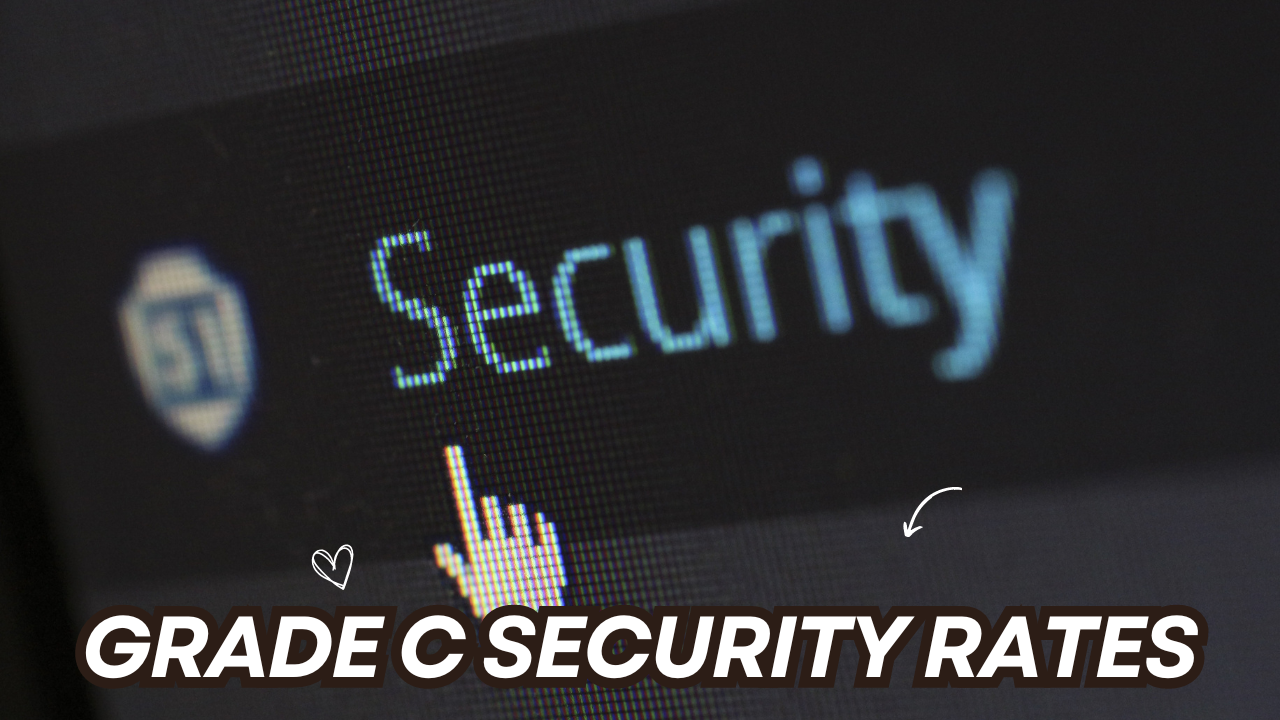Grade C Security rates are not just monetary figures; they represent the value and assurance that Grade C security personnel bring.
Why Grade C Security Rates Matter:
For Businesses:
- Asset Protection: Grade C security protects your business assets from theft or damage.
- Adapting to Risks: Helps businesses adapt to new security challenges effectively.
- Building Confidence: Prioritizing security builds trust among customers and employees.
For Event Organizers:
- Ensuring Safety: Grade C security is crucial for overall safety at events, handling crowds, and emergencies.
- Smart Risk Management: Helps manage risks strategically in today’s complex event environment.
- Positive Reputation: Well-coordinated security creates a positive image, attracting more attendees.
Examine the typical salary trends in various sectors. Access detailed information about average salary statistics on our platform.
Grade C Security Overview:
Role and Skills:
Grade C security personnel are the foundation of security services, trained for essential tasks like patrolling, surveillance, and incident response. They possess versatile skills, ensuring adaptability in various security scenarios.
Significance:
- Entry Point: Grade C serves as the entry-level to security, making it accessible for different needs.
- Cost-Effective: Balances affordability by providing crucial protection.
- Versatility: Equips individuals with diverse skills for effective security functions.
- Deterrent Effect: Visible presence is a deterrent, contributing to a safer environment.
Hourly Rate Structure (2024):
Hourly Rates:
- Area 1 and Area 2: R25.42 per hour.
- Area 3: Approximately ZAR 4,786.0 monthly.
Additional Bonuses and Commissions in Grade C Security:
Beyond Minimum Wage:
- Grade C security personnel can receive extra bonuses and commissions, increasing their overall pay beyond the minimum wage.
Types of Extra Pay:
Performance Bonuses:
- Guards get extra money for meeting or exceeding their security goals.
Longevity Bonuses:
- Additional pay for guards who stick with the company for a long time, rewarding loyalty.
Recognition Bonuses:
- Extra money as a thank-you for outstanding performance or achievements.
Commissions:
- Some roles involve commission-based pay, especially if the guard is involved in sales or client acquisition.
Why It Matters:
- Bonuses and commissions motivate guards to do their best and stay with the company.
- Guards feel valued for exceptional work through extra bonuses.
- Guards with extra responsibilities or skills may negotiate additional pay.
Fair Compensation Tips:
- Employers should clearly explain bonus and commission structures for transparency.
- Guards can discuss additional compensation based on their performance and responsibilities.
Common Responsibilities:
Tasks Include:
- Patrolling: Regular checks to detect and deter threats.
- Surveillance: Monitoring cameras and alarms for suspicious activities.
- Maintaining Order: Controlling crowds, ensuring safety, and responding to incidents.
Stay updated on the salary increase for public servants in 2024. Find out more about the salary adjustments and their implications on our page about public servants' salary increase in 2024.
Factors Affecting Rates:
Location:
- Rates are influenced by the living costs and security demands in specific regions.
- In major cities with high living costs and increased security needs, Grade C security rates tend to be higher.
- Conversely, in regions with lower demand and living costs, rates may be comparatively lower.
Experience:
- More experienced Grade C security guards command higher rates.
- Years of service and accumulated expertise contribute to a higher value placed on their skills.
- Additional training and specialized skills may also impact the rates for experienced guards.
Overtime:
- Security guards often work irregular hours, including night shifts, weekends, and holidays.
- Overtime work provides an opportunity for additional income.
- Guards who are flexible with their schedules and willing to work during unconventional hours may receive higher compensation.
Additional Considerations:
- Specialized Training: Guards with additional training, such as first aid or specific security certifications, may command higher rates.
- Company Policies: Some security companies may have specific policies that influence hourly rates based on factors like employee performance or tenure.
Importance of Considering Factors:
- Employers should assess these factors when determining compensation to ensure fair and competitive rates.
- Guards can use their experience and willingness to work irregular hours as negotiation points for better compensation packages.
Understanding how location, experience, and overtime impact Grade C Security Rates is essential for both employers and security personnel to establish fair and competitive compensation structures in the security industry.


2 thoughts on “Grade C Security Rates in South Africa 2024: Hourly Pay, Roles, and Factors”